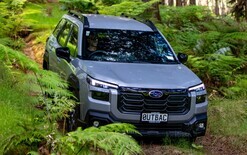EVs no ‘silver bullet’

The head of Toyota New Zealand is calling for government officials to focus on a series of powertrains for cars and not just battery electric vehicles (BEVs) as they mull over recommendations to slash transport emissions.
Neeraj Lala, chief executive, says decarbonising the transport sector over the coming years can best be achieved by adopting a range of low-emissions options, including hybrid engines.
He remarks that EVs are not a “silver bullet” after the Climate Change Commission’s final advice to the government was tabled in parliament on June 9.
Toyota NZ says it welcomes the commission amending its views from its draft report and acknowledging efficient petrol and diesel cars can also contribute to reducing emissions.
“Toyota definitely supports the government’s transition plans to a low-emission economy,” explains Lala.
“We believe a multi-powertrain strategy focusing on different low-emitting engines is the best way to reduce carbon emissions as a country while meeting customer needs.”
Lala, pictured, says the commission’s report, which advocates for a ban on imports of petrol and diesel cars as early as 2030, shows it has listened to the concerns of car manufacturers.
While the official advice calls for a ban on internal combustion engine (ICE) vehicles no later than 2035, it recommends the country “should import more efficient vehicles until EVs are widely available and affordable”.
Toyota NZ predicts the supply of BEVs and plug-in hybrid electric vehicles (PHEVs) will increase over the next few years, but it says hybrids remain the best alternative to start reducing carbon dioxide (CO2) emissions now.
It notes hybrids are nearing price parity with petrol models and are also widely available in the used-vehicle market.
“EVs are not the silver bullet for three compelling reasons – they are priced beyond the reach of most car buyers, they continue to be in short supply, and cheap EVs sourced from new markets will not be highly rated from a safety point of view,” says Lala.
“We see hybrids as a way that we can act quickly as a country to reduce CO2 emissions with the current supply and infrastructure constraints that surround BEVs and PHEVs.
“We are already seeing Kiwi consumers taking these options up at a faster pace, with more than an 800 per cent increase in our hybrid sales over the last five years.”
Toyota claims hybrids have contributed to an average CO2 reduction of 20g/100km across its hybrid range. As a result, the marque says it is on track to meet its Clean Car CO2 target of 164gm/km before the target date of 2023.
Meanwhile, the Lexus portfolio is well below its 2023 goal of 176g/km and looks set to surpass the total industry target of 105g/km by 2023.





